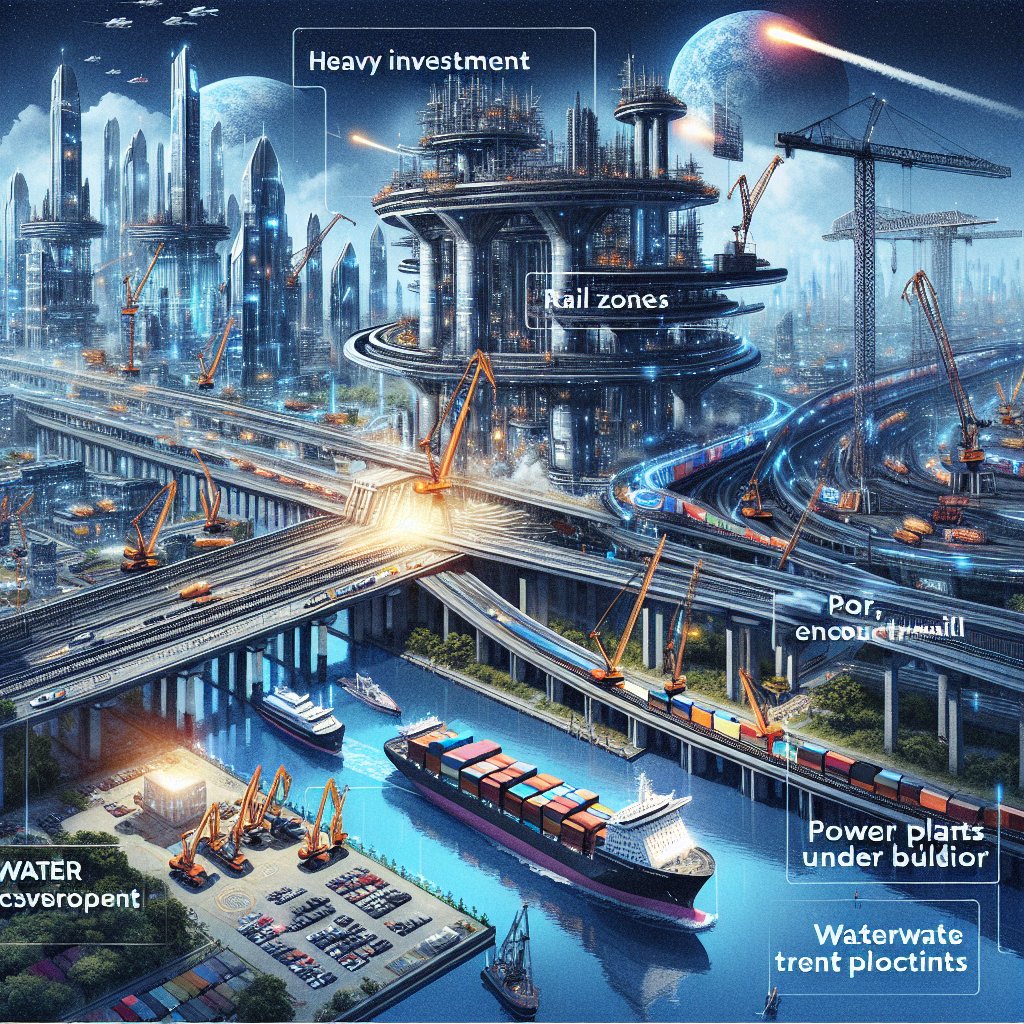Image created by AI
South Africa Set for Infrastructure Revolution with R180 Billion Investment
In a decisive move to kickstart an ailing construction industry and spur economic growth, President Cyril Ramaphosa has announced that the South African government is fast-tracking 12 new, significant infrastructure projects valued at over R180 billion. This bold initiative, revealed at the 2024 Sustainable Infrastructure Development Symposium in Cape Town, aims to reignite the nation's construction landscape, deeply impacted by years of declining spending and job losses.
Ramaphosa's announcement heralds renewed hope for the sector, with an estimated 400,000 direct and indirect jobs expected to arise from the construction and operation of these projects. The president emphasized the necessity of a "constant reliable pipeline of projects," highlighting the strategic role of more than 1.2 million employed in the construction industry and its supplier networks.
Among the prioritized developments are the Fetakgomo Tubatse, Namakwa, and Nkomazi Special Economic Zones, designed to create hubs of economic activity and development. With an eye on the congested freight situation, the government will invest heavily in rail and port infrastructure, including a noteworthy R38 billion expansion of the Durban Container Terminal Pier 1 and an R7.5 billion improvement of the freight rail link between Gauteng and the Eastern Cape.
Energy infrastructure is also on the docket, with significant investments like Eskom’s R30 billion gas project in Mossel Bay and a pumped hydro storage project costing R35.8 billion. In the pursuit of sustainable and efficient services, the Amathole Water bulk-supply augmentation and the Rooiwal wastewater treatment plant are slated for enhancements, hoping to attract private sector funding and operational oversight.
The education and health sectors will see a much-needed boost too, with school infrastructure projects valuing R8.5 billion.
To realize the ambitious goals of countrywide infrastructure development, the president stressed the need for an additional R1.6 trillion in public investment complemented by R3.2 trillion from the private sector by 2030. To this end, reforms such as the amendment of the Division of Revenue Act and revisions to Public-Private Partnership regulations are being proposed to bolster business confidence, attract investment, and ensure effective deployment of resources for infrastructural projects.
The government's approach includes leveraging the expertise of development finance institutions and multilateral development banks, which can offer both technical and financial guidance, thus increasing the state's capacity to manage such expansive projects.
Infrastructure South Africa has compiled a "Construction Book" that lists over 150 infrastructure projects, beyond the 12 highlighted at the symposium, providing a comprehensive overview of upcoming developments.
This initiative signals the country's long-awaited shift from planning to execution stages, embodying Ramaphosa's commitment to bringing bankable projects to fruition and marking the dawn of a new era for South Africa's infrastructure and economy.










